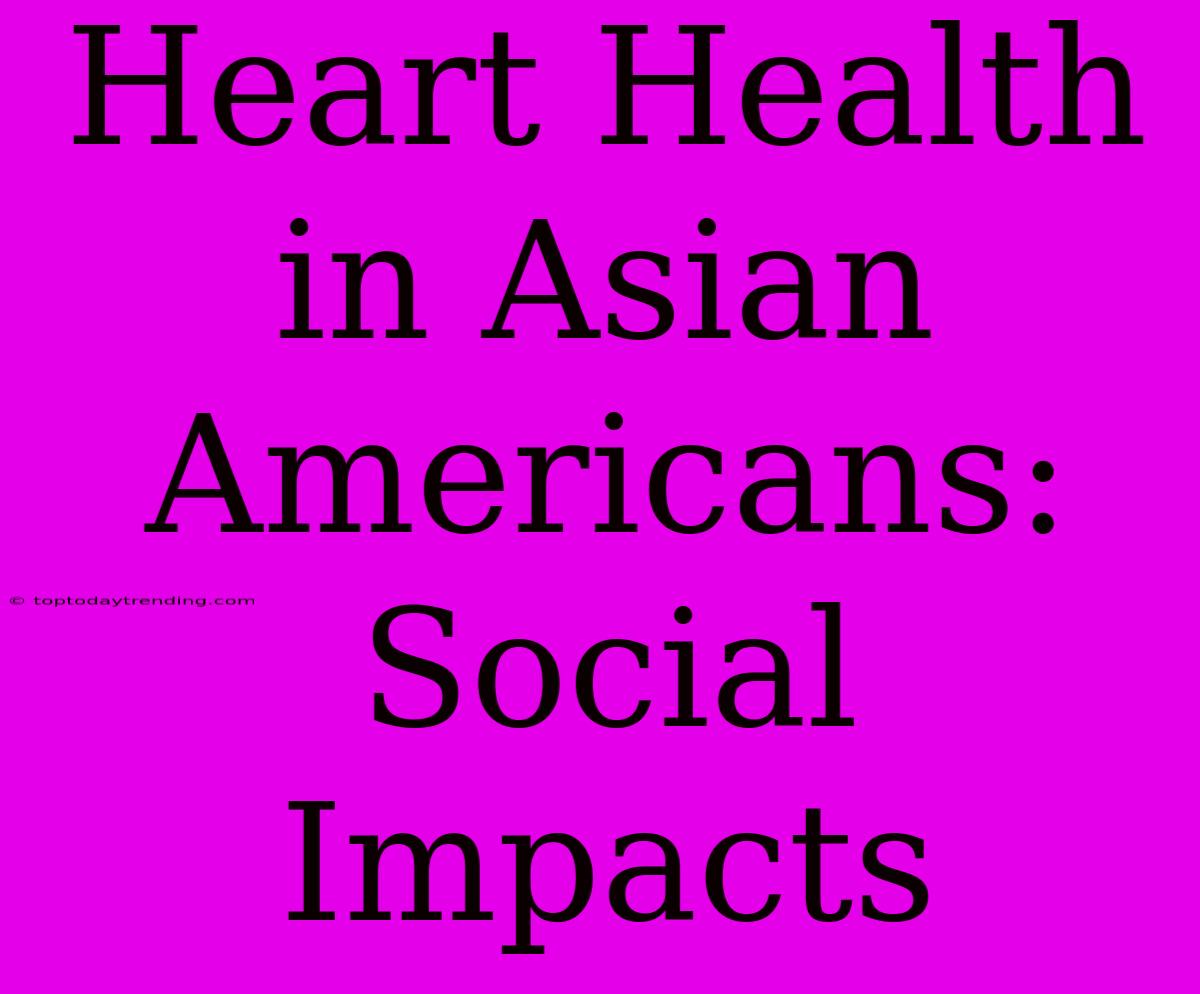Heart Health in Asian Americans: Social Impacts
Heart disease is a leading cause of death in the United States, and Asian Americans are not immune. While often perceived as a "healthy" group, the reality is more nuanced. Asian Americans face unique challenges to heart health due to a complex interplay of social and cultural factors. Understanding these impacts is crucial to developing effective interventions and promoting better health outcomes.
The “Model Minority” Myth
The stereotype of Asian Americans as a "model minority" – successful, hardworking, and healthy – has been a double-edged sword. While it can foster positive perceptions, it also downplays the reality of health disparities within the Asian American community.
The myth can lead to:
- Underestimation of health risks: Health professionals may be less likely to screen Asian Americans for heart disease, leading to delayed diagnoses and treatment.
- Stigma and silence: Individuals may be hesitant to seek help due to cultural norms emphasizing self-reliance and avoiding burdening others.
- Lack of research and resources: Limited funding and research on Asian American health issues can lead to inadequate understanding of their specific needs.
Social Determinants of Health
Social determinants of health, factors beyond individual choices, heavily impact heart health in Asian Americans. These include:
- Language barriers: Limited English proficiency can hinder access to quality healthcare, health information, and support systems.
- Immigration status: Immigrants often face challenges with insurance coverage, employment, and housing, creating stress and impacting health.
- Cultural beliefs: Traditional Asian diets, while generally healthy, can sometimes be high in sodium and saturated fats.
- Limited access to culturally appropriate care: Healthcare providers may not be familiar with specific health concerns and cultural beliefs of different Asian subgroups.
- Discrimination and racism: Experiences of racism and discrimination can lead to chronic stress, contributing to heart disease risk.
Addressing the Gaps
Improving heart health in Asian Americans requires a multi-faceted approach that addresses these social impacts:
- Raising awareness: Educating both the public and healthcare providers about the specific health needs of Asian Americans is essential.
- Promoting language access: Ensuring access to healthcare services, information, and resources in different Asian languages is crucial.
- Cultural sensitivity: Healthcare providers should be trained in culturally competent care, understanding the unique beliefs and practices of various Asian subgroups.
- Addressing social determinants: Addressing issues like poverty, lack of insurance, and housing instability can improve overall health outcomes.
- Supporting community-based organizations: Organizations that provide culturally relevant health education, screening, and support services play a vital role.
Conclusion
The "model minority" myth has obscured the realities of heart health disparities in Asian Americans. Addressing these issues requires a deeper understanding of the social factors at play and a commitment to providing culturally relevant and accessible healthcare. Only then can we begin to close the gap and ensure equitable health outcomes for all members of the Asian American community.

